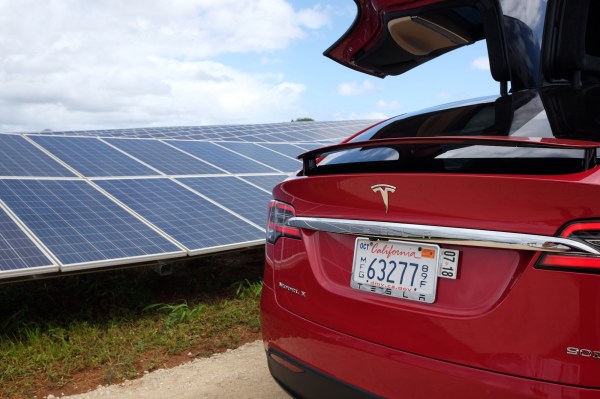This week saw two huge tech funding rounds for Airbnb and Instacart, Google held its Next event in San Francisco to outline its cloud strategy moving forward and we got a glimpse at Tesla’s Kauai solar installation. These are the top stories from this week.
1. WikiLeaks strikes again. The org released a huge set of more than 8,000 documents called Vault 7, claiming to detail the CIA’s efforts to hack popular consumer devices like iPhones, Android phones and Samsung smart TVs. Apple pushed back and said many of the iOS exploits in the WikiLeaks dump have already been patched and it is working to address any new vulnerabilities. Google also dismissed the documents, saying most of the vulnerabilities were outdated. Here’s a more thorough list of the definitions leaked.
2. Airbnb closed a massive $1 billion round at a $31 billion valuation, and sources say the vacation marketplace turned profitable in the second half of 2016 and will be profitable in 2017 on an EBITDA basis. Looks like a 2017 IPO was a pipe dream. The SEC form filed names Alfred Lin of Sequoia and Jeff Jordan of Andreessen Horowitz as investors, and when the first tranche of this round closed, it was reported that Google Capital and TCV were leading the round.
3. On-demand grocery delivery startup Instacart raised $400 million in a new round of financing at a valuation of $3.4 billion. Over the past year, Instacart has weathered a number of controversies after raising prices for consumers and cutting rates for its workers. Previously, the startup had raised around $260 million at a reported $2 billion valuation.
4. Google held its Next conference in San Francisco, during which it made a slew of announcements relating to its cloud platform. Google is acquiring data science community Kaggle for an undisclosed amount, and is splitting Hangouts into Chat and Meet. Overall, the company opened up about its enterprise cloud strategy, and Google is working hard to position itself as a more open alternative to cloud market leaders like AWS.
5. We got a glimpse into Tesla’s solar installation in Kauai, Hawaii, and its proof that the company’s acquisition of SolarCity is necessary. Tesla’s grand vision is to make solar and renewable energy a practical option everywhere, not just where the sun shines brightest. This is what the future of Tesla looks like.
6. Facebook is trying to slowly strangle Snapchat. Facebook globally launched its Messenger Day platform, a feature that lets Messenger’s 1 billion users share decorated photos and videos that disappear after 24 hours. Alongside WhatsApp Status, Instagram Stories and now Facebook Stories, Messenger Day could use convenience to compete with Snap for user growth.
7. Tinder has been operating a members-only secret version of the app called Tinder Select. The version is meant to serve elite users, including celebrities, CEOs and supermodels. It appears Tinder invited these people to the platform, and these users have the ability to nominate others.
8. Hyperloop One showed off its first full-scale test track meant to demonstrate the efficacy of its eventual Hyperloop transportation system, and it looks like they’re pretty far along. The goal is to get a test run in the first half of this year, using the 500-meter-long DevLoop as a proof of concept to prepare for the construction of its first commercial installation linking Dubai and Abu Dhabi.
9. Trust is an important concept in the world of human-robotics relationships. If robots are going to operate in the real world and blend in to human societies, they have to learn which humans to trust. A Tufts University lab is working to turn the notion on its head, asking an equally important inverse: Should robots trust us?
10. The Oculus and ZeniMax Media feud is opening up once again. Oculus CTO John Carmack is suing ZeniMax for $22.5 million that he says has not been paid to him for the 2009 sale of his game studio, id Software, known for such pioneering video game classics as Doom and Quake. The lawsuit reveals that ZeniMax Media paid $150 million for the game studio.
11. Confide is a messaging app popular among D.C. insiders who want to keep their communications secret under the Trump administration. The app has raised millions in venture capital and promises “military-grade encryption.” However, this week, a proof of concept paper was published demonstrating how to intercept encrypted Confide messages, sending researchers questioning and critiquing the app’s claims of security.
